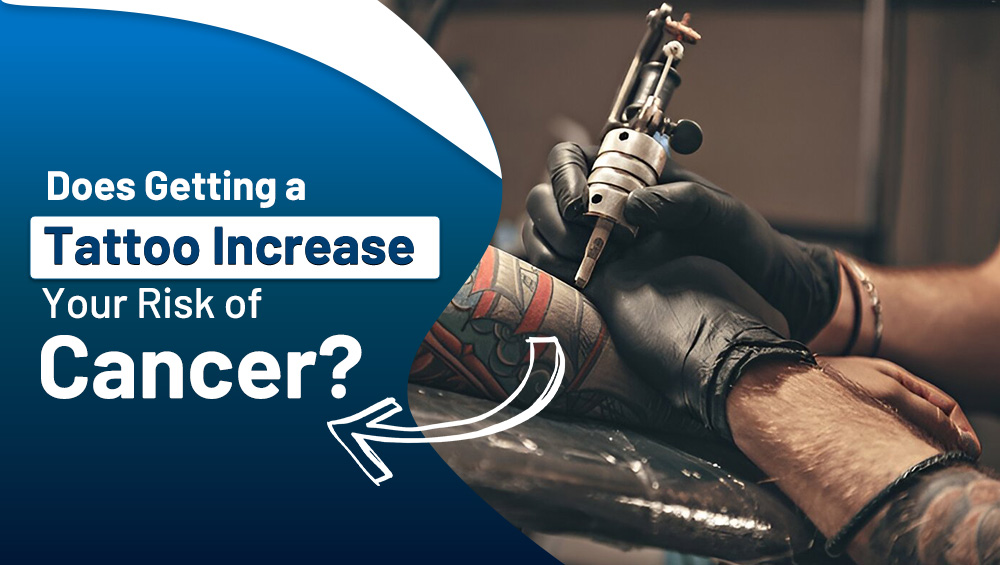Does Getting a Tattoo Increase Your Risk of Cancer?
Tattoos have been a form of self-expression for centuries, with their popularity surging in recent decades. While millions proudly flaunt their inked designs, some concerns arise about the health implications of tattoos. One question that often comes up is whether tattoos can cause cancer. Let’s explore the science, myths, and facts to better understand this topic.
Tattoos and Their Components
A tattoo involves injecting ink into the dermis, the second layer of the skin. This ink can contain various substances, including pigments, metals, and chemicals. While tattoo artists use sterilized needles to ensure safety, the long-term impact of tattoo ink on the body has been the subject of much research and debate.
Tattoo ink contains pigments made from compounds that vary widely in composition. Some inks may include heavy metals like lead, cadmium, and mercury. Others use organic compounds, which might degrade over time, releasing byproducts. The concern arises because some of these substances have been found to be toxic or carcinogenic in other contexts.
Can Tattoos Directly Cause Cancer?
As of now, there is no conclusive evidence that tattoos directly cause cancer. However, certain components of tattoo ink have raised concerns:
- Carcinogenic Substances in Ink: Some tattoo inks, especially older formulations, may contain substances classified as potential carcinogens. For example, azo pigments, used in some colored inks, can break down into aromatic amines, which have been linked to cancer.
- Skin Reactions and Inflammation: Chronic inflammation or irritation at the tattoo site could theoretically contribute to cancer risk. Persistent skin reactions, such as redness, swelling, or granulomas, should be monitored by a healthcare professional.
- Sun Exposure: Tattoos can make the skin more sensitive to ultraviolet (UV) radiation. Prolonged exposure to UV rays without proper protection can increase the risk of skin cancers, such as melanoma. It’s essential to use sunscreen on tattooed skin.
What Does Research Say?
While tattoos themselves are not definitively linked to cancer, studies have raised some concerns:
- Lymph Node Effects: Research has found that tattoo ink particles can migrate to lymph nodes. Enlarged lymph nodes, often a sign of the body’s immune response, have been observed in individuals with tattoos. While this isn’t directly linked to cancer, it’s an area of ongoing study.
- Black Ink and Risks: Black ink, which contains carbon black or polycyclic aromatic hydrocarbons (PAHs), has been studied for potential risks. PAHs are known carcinogens in high concentrations, but the levels in tattoo ink are not well-established.
- Case Reports: A few case studies have reported rare instances of skin cancers, such as squamous cell carcinoma and malignant melanoma, developing within tattooed areas. However, these cases are anecdotal and not sufficient to establish a causal relationship.
Myths About Tattoos and Cancer
- All Tattoos Cause Cancer: This is a myth. There is no scientific consensus or evidence that tattoos universally cause cancer.
- Colored Inks Are More Dangerous: While some colored inks may contain harmful substances, modern regulations in many countries aim to minimize risks by banning toxic compounds in tattoo inks.
- Tattoo Removal Increases Cancer Risk: Laser tattoo removal has not been shown to cause cancer. However, it can release degraded ink particles into the body, which is an area that requires further research.
Safety Tips for Tattoo Enthusiasts
If you’re considering getting a tattoo, here’s how you can minimize potential risks:
- Choose a Reputable Tattoo Artist: Ensure the tattoo studio follows strict hygiene practices and uses high-quality, regulated inks.
- Ask About the Ink: Inquire about the brand and composition of the ink. Look for inks compliant with safety standards, such as those regulated by the EU or FDA.
- Protect Your Tattoos from the Sun: Use a broad-spectrum sunscreen on tattooed skin to prevent UV-related damage and reduce the risk of skin cancer.
- Monitor Your Skin: Regularly check your tattoos for changes, such as unusual lumps, discoloration, or prolonged irritation. Consult a dermatologist if you notice anything suspicious.
- Stay Informed: Research and regulations around tattoo safety are evolving. Stay updated on findings and recommendations from health authorities.
The Bottom Line
Tattoos are a form of art and identity, enjoyed by millions worldwide. While concerns about their link to cancer are valid, the evidence so far does not conclusively support a direct connection. Understanding the components of tattoo ink and adopting safe practices can help mitigate risks.
If you have tattoos or are planning to get one, being proactive about skin health is key. Regular dermatological check-ups and informed choices ensure that your tattoos remain a beautiful and safe expression of who you are.


